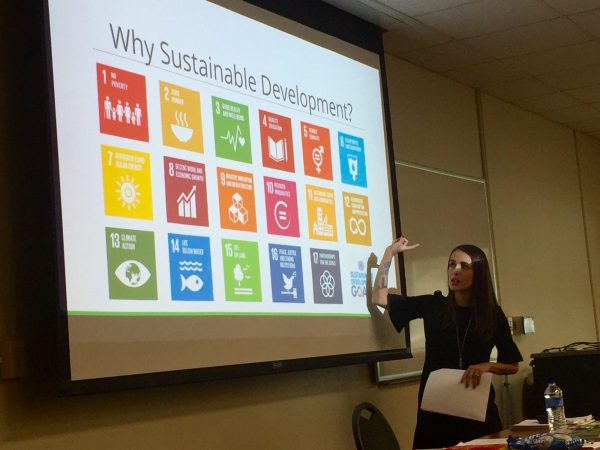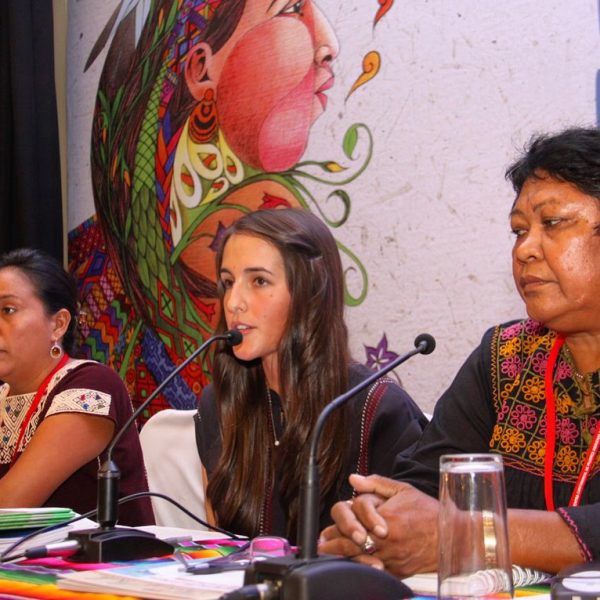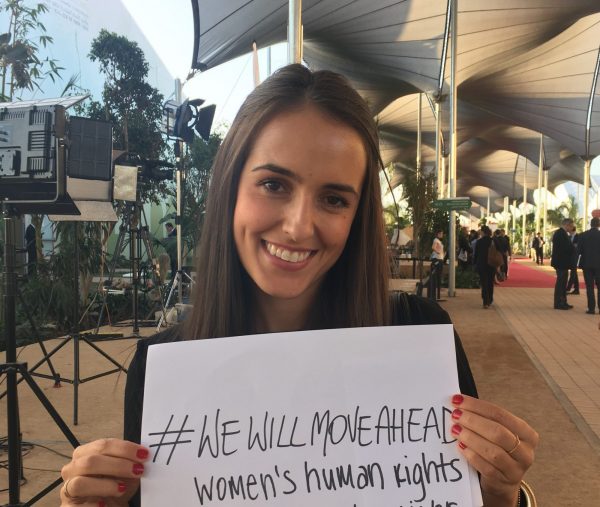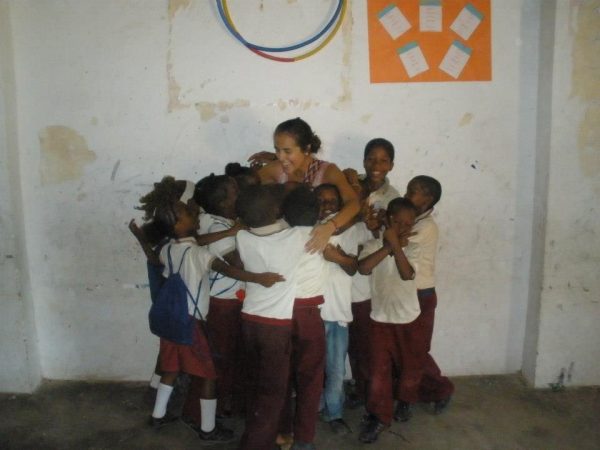Some of us move through this world ever seeking our life’s purpose. Some of us find purpose in college and live it long into our golden years. Then, there’s Juliana Vélez, who took inspiration from her grandmother and turned it to purpose – at age 10.
Vélez (’11, Communication Studies) grew up in Bogotá, Colombia. "I had a privileged upbringing compared to a lot of the girls my age who were directly being affected by [Colombia’s] ongoing violence and internal conflict," Vélez says, who attended a bilingual school, as did both of her parents when they were children.
"I was so fortunate to have parents that opened my eyes to the world. They instilled a sense of curiosity, always encouraged me to learn more, and prioritized quality education and cultural exchange.”
But, it was the early 1990s in Colombia. The decades-long civil conflict between leftist guerrilla groups, right wing paramilitaries, and Colombia’s armed forces escalated as drug cartels became more powerful and violent.
Her father taught courses in veterinary medicine at the Universidad de La Salle. He also worked in bovine veterinary medicine, which took him to remote agricultural regions that were becoming increasingly unsafe. When an opportunity to start a new career working at the Aurora Organic Dairy in Colorado surfaced, the family moved. Vélez was eight years old.
She would return to Colombia every summer for three months to see relatives, often traveling to the outskirts of Bogotá with her grandmother. “She was always involved in community service and social change work," Vélez says. "She was truly an inspiration."
Vélez distinctly remembers one particular visit with her grandmother to a safe haven for children who had been displaced due to the Colombian conflict. The shelter was located on the outskirts of Bogotá in an area where poverty and crime were prevalent, resources were scarce, and access to education was non-existent. She was 10.
"I had seen severe poverty before but seeing children my own age confronting such difficult situations was eye opening," Vélez says. "Seeing that and seeing other 10-year-olds living in those conditions made me realize that I want to do what my grandma is doing: help and support communities that are affected by conflict, violence, oppression, and other factors that are out of their control."
A firm Ram foundation
As a young person, seeing violence, oppression, and a stark disparity between men and women shaped Vélez’s path of study at Colorado State University. She majored in communication studies and minored in ethnic studies and women's studies. The combination enriched her world view and eventually directed the focus of her graduate studies.
"The way I analyze the world now, in large part is due to the classes I took at CSU and the extraordinary professors I had,” Vélez says. “They had a huge impact on what I am doing now."
These mentors, as well as her coursework, provided a theoretical framework for addressing and exploring how multiple systems of oppression shape social identities. As a result, she learned how to have complex conversations, integrate different perspectives, and navigate group dynamics across cultures.
Vélez honed these skills through her involvement in several cross-cultural and leadership opportunities at CSU, such as serving as a student associate with the Center for Public Deliberation, studying abroad with Semester at Sea, working in the College of Agricultural Sciences development office, and participating in the President's Leadership Program.
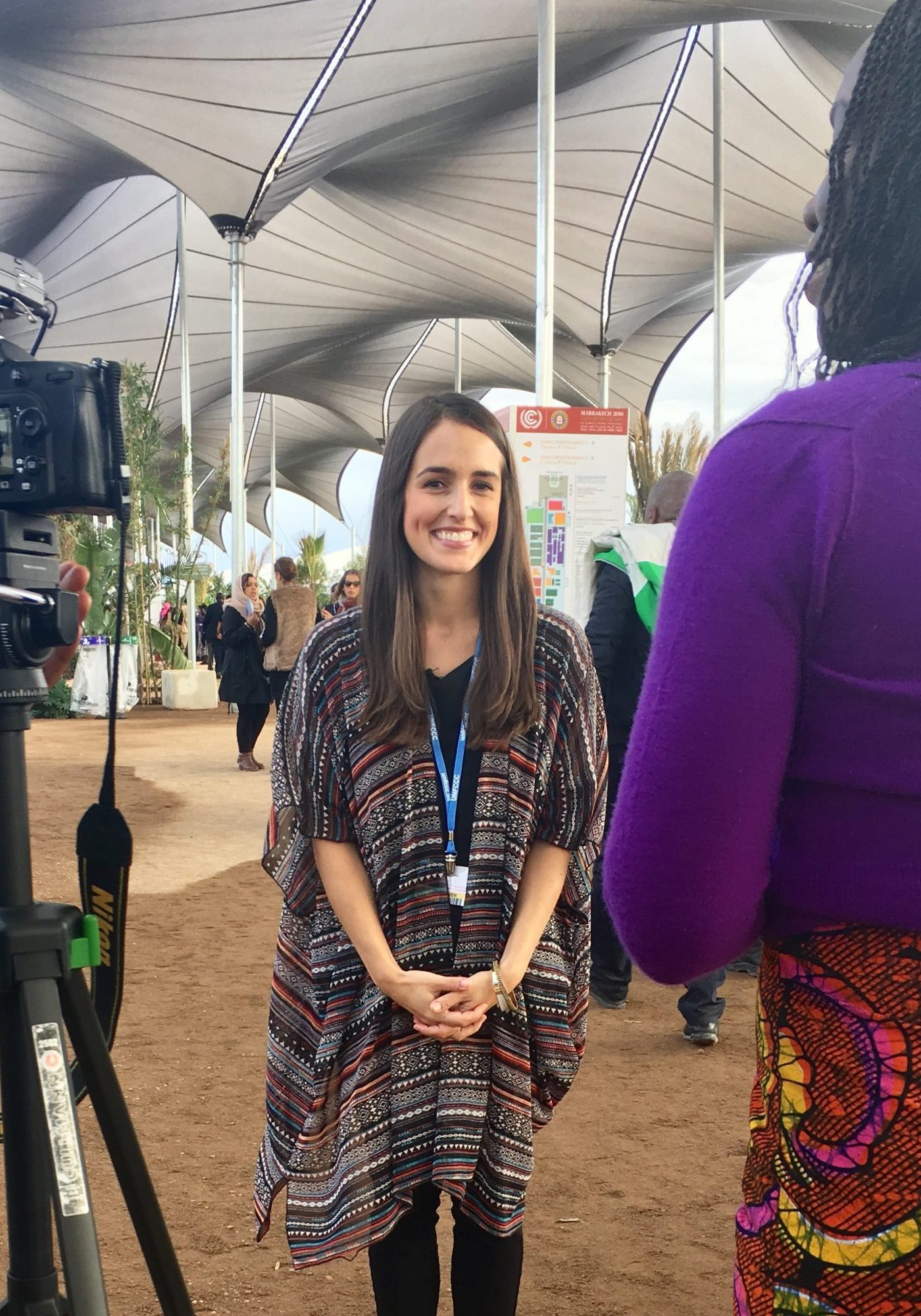
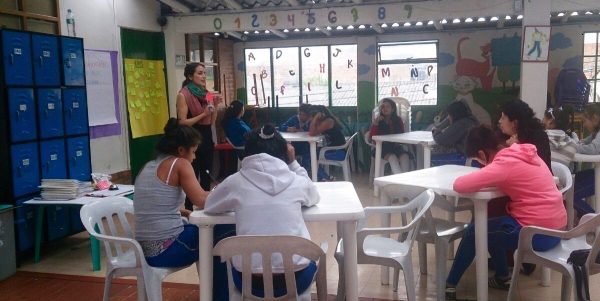
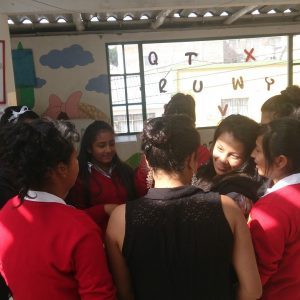
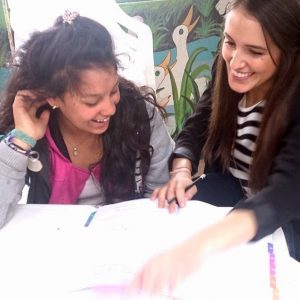
Carving a niche
After graduating from CSU in 2011, Vélez pursued a variety of international, cultural, and educational interests.
Among the positions she held, the most pivotal was the year she taught basic English to primary students in Santa Ana, Isla Baru (located off the coast of Colombia) for World Teach. The experience reinforced that she wanted to focus on international development and in 2013, she began working toward an M.S. in Global Affairs – International Development and Humanitarian Assistance, with a focus on Gender Studies, at New York University in New York City.
With the United Nations just down the street, Vélez dove into policy research as a crisis prevention and recovery intern with the Peace & Security unit within UN Women, which spearheads the development of women’s equity worldwide. She led extensive research on women, peace, and security, including the increase in international female extremism, gender-based violence in Guatemala, and linkages among climate change, conflict, and gender.
But policy was just one aspect of her interest in studying gender within the context of international development. Girl’s education and empowerment were stronger driving interests so she followed that lead.
Coming full circle
After graduate school, Vélez joined the international nongovernmental organization Women’s Environment and Development Organization as an advocacy and projects associate. She supported a key set of programs related to advocacy and women’s leadership programs specifically related to climate change. She traveled abroad, engaged with advocates and activists from around the world, and loved her work.
Then one day, a chance encounter on the Web propelled her into a realm where education and empowerment for girls were at the forefront.
HerStory Campaign – a program powered jointly by LitWorld, a New York City-based nonprofit that works with national and international partners to ensure that young people worldwide can experience the joy and transformation of reading, writing, and storytelling, and California-based nonprofit Global G.L.O.W. (Girls Leading Our World) – was looking for a manager to support the empowerment of girls worldwide through literacy, mentorship, and innovative curriculum and programs.
“I think I saw the position and actually screamed, ‘This is so perfect!’” Vélez says. It was as if the universe had crafted the position expressly for Vélez.
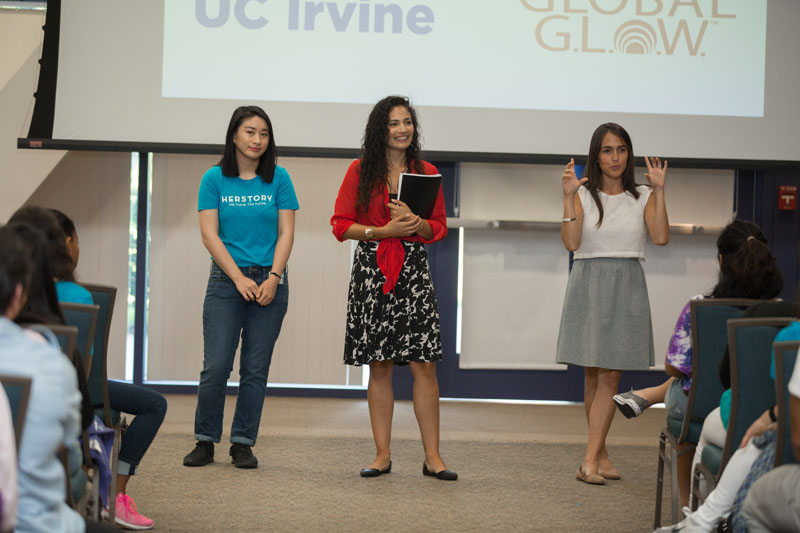
She was able to call on her knowledge of leadership development, participatory learning and communication and her graduate school experience developing a skills-based curriculum for adolescent girls in conflict and post-conflict urban settings. Vélez is now adding her skills to the HerStory program curricula that combines social-emotional learning, literacy and self-expression skills, and dynamic mentorship to ensure that each and every girl grows up strong, resilient, and reaches self-determined independence.
Vélez and her U.S. colleagues partner with 52 in-country, community-based organizations that are working toward improving the educational and social opportunities of girls. They work alongside girls around the world, in 27 countries, from the U.S. to Cambodia, Nicaragua to Nepal, Peru to Pakistan, serving more than 5,000 girls living in profoundly challenging communities, to support them in finding their voice, amplifying their stories and perspectives, and empowering them to create a more equitable world.
“Working with young and adolescent girls is so uplifting,” Vélez says. “You see the hope for the future and the silver lining among all the craziness that is happening in the world.”
While Vélez would like to continue doing research and eventually become a professor at a U.S. university, her focus now is on a “teen club” curriculum for girls in Southern California and New York City.
“I hope to be able to continue providing support, resources, and mentorship for women and girls. I want every girl to feel that they have the right to decide what their future looks like, to feel confident and empowered.”
Learn more about the Department of Communications Studies.

